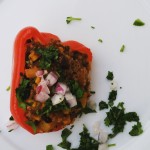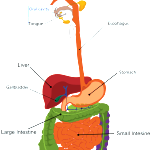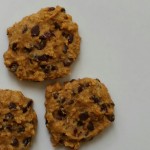My baby girl has terrible food allergies. Honestly, it has been highly frustrating, yet very eye opening at the same time. I have always been what I considered to be a healthy eater, but because of the little miss’ allergies, our family has had to make some pretty substantial dietary changes. It has been a learning curve for sure, but I have been forced to do the research, and boy am I glad. I have started digging into food and its effects on the body so that I can learn as much as I can, and let me tell you, it has been entirely fascinating and eye opening. Honestly, a real game changer.
One of the biggest topics I have delved into, but yet I still feel as though I am only scratching the surface is the ever hot button topic of gluten and grains in general. Now, I am not claiming to be any sort of expert, not by any stretch of the imagination! I am not a Registered Dietitian nor do I have a degree in Nutrition, and this blog is simply my musings on my findings. However, it is all so interesting to me that I cannot help but share it.
While my family and I have not gone completely cold turkey on gluten, we are definitely committing more and more to a gluten and grain-free diet. Let me tell you why. As with all of my content, my prayer is that it is informative, educational and valuable. I hope this at least gets you thinking.
Ok so it basically all boils down to gut health.
Grains are a living thing, and all living things have defense mechanisms. Since grains can’t run away when under attack, God created them with internal defenses to fight predators. The grain of a plant sees your digestive system as a predator and fights against you, preventing your ability to fully break down the food.
After any food is broken down, it travels into the small intestine, which is where nutrients get absorbed. It is also the location of most of your immune system. When your food is not fully broken down, the bigger pieces of grain go into your small intestine, and your body reacts to these as invaders so to speak and a couple of things happen:
1. They start to destroy the villi, which lines the small intestine and is responsible for nutrient absorption. If you keep eating grains day in and day out, you are going to be getting less and less nutrients from anything that you eat because your body can’t properly absorb them.
2. It also weakens your immune system because again your body sees grains as invaders and responds by telling your white blood cells to launch an attack. This is what happens when any allergen, virus, bacteria etc. enters the system; your body responds with an inflammatory response in order to try and fix the problem. If your immune system is overworked by the continual consumption of grains, it will become chronically inflamed, leaving you susceptible to all kinds of chronic inflammatory diseases from acne to anxiety to eczema to migraines to infertility to cancer to arthritis to Alzheimer’s. You name it. You must keep in mind intolerance to a food doesn’t always manifest itself in bowel symptoms (bloating, gas, ibs, diarrhea etc.), but rather it can show itself in a myriad of different ways like all the previously mentioned inflammatory diseases. For example, my daughter is allergic to a variety of foods, and her number one symptom is eczema. Another example is my own personal intolerance to dairy, which results in headaches.
3. In the same vein, your body is so busy fighting the attack from the grains that your ability to fight infections, allergies, diabetes, heart disease, etc is impaired.
So basically what it boils down to is that grains weaken your gut (small intestine), which is essentially the center for disease, sickness, chronic conditions, etc. If you have a weak gut (which happens with the habitual eating of grains), you are more susceptible to all of the aforementioned.
Our ancestors used to eat grains with more success because they would go through the process of soaking, sprouting and souring, which would “trick” the grain into thinking it was planted and they lose their “defense mechanism” so to speak, and thus their nutrients can be absorbed more readily. We no longer go through that process before we consume grains. And even if we did, it only helps the problem. It doesn’t actually fix it.
All in all, proteins, veggies and fruits are more nutrient dense and more easily digestible. And that is why I have been conforming more and more to not just a gluten free, but a grain free diet.








Leave a Reply